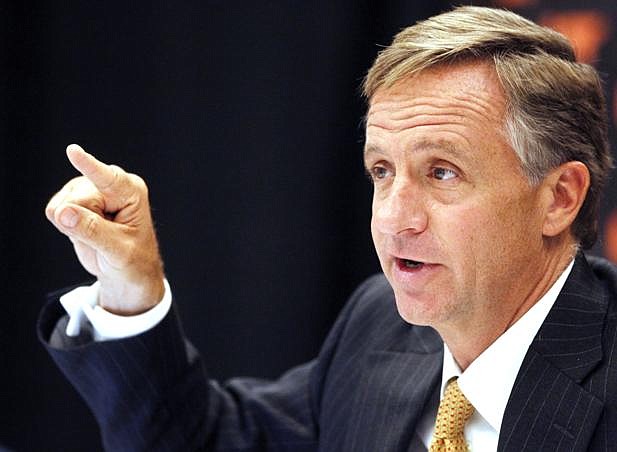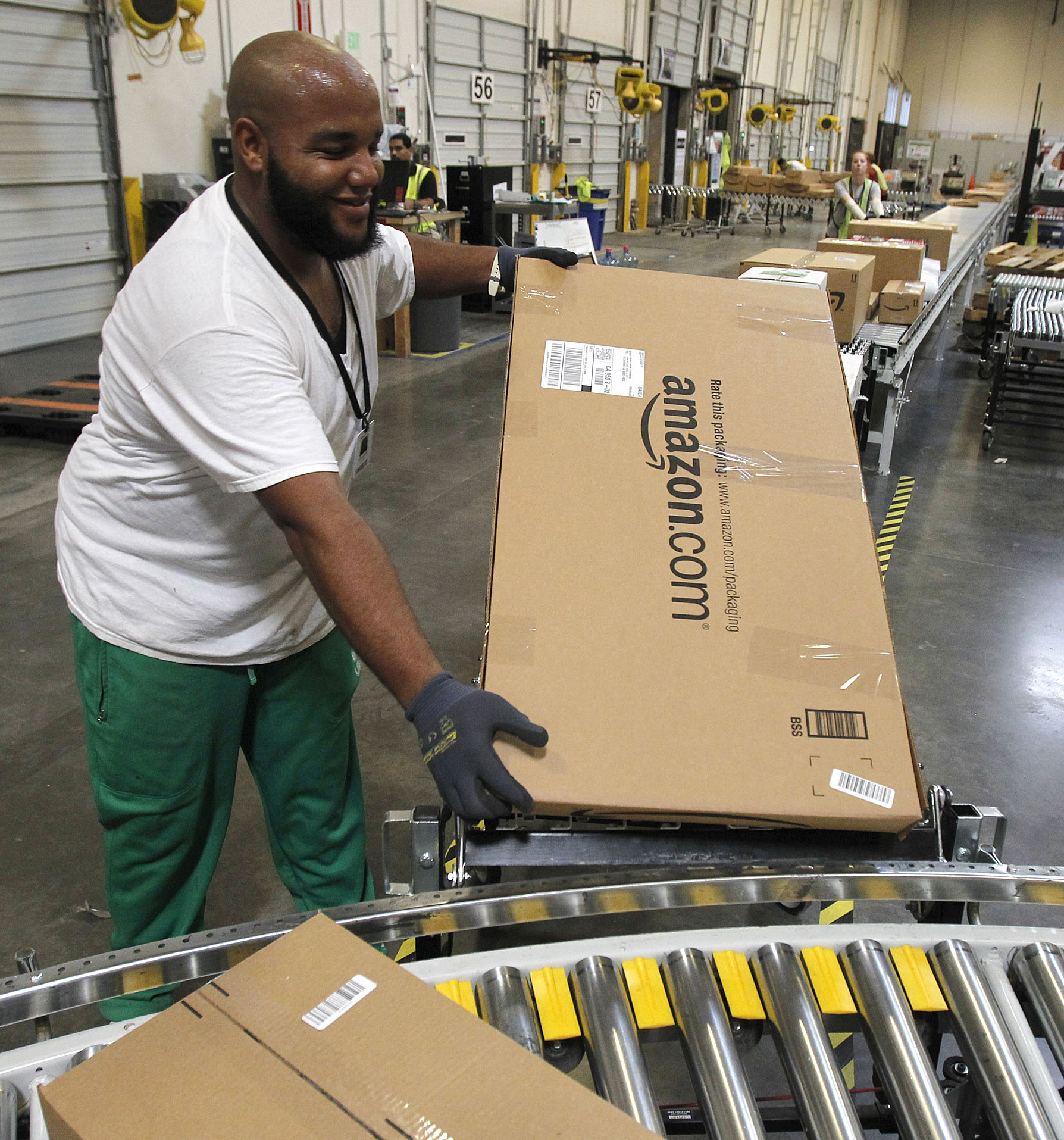NASHVILLE - Gov. Bill Haslam said Friday he favors his approach of getting Amazon to collect state sales taxes voluntarily at some point instead of seeing state lawmakers try to force the Internet retailing giant to do so.
"I certainly wouldn't like to see us do that given the commitments we've made to Amazon in the past," Haslam said in his fullest comments on discussions his administration is having with the company. "I mean, I wouldn't like to see just us do something that they didn't agree with."
Amazon spokeswoman Mary Osaka did not respond to an email request for comment about the ongoing negotiations.
The company is spending $139 million to build two distribution centers in Hamilton and Bradley counties. Amazon recently announced it was leasing space for an additional center outside Nashville.
Haslam previously has said he backed the agreement struck by his predecessor, Phil Bredesen, in which Amazon would not have to collect such taxes if the company built the warehouses in Southeast Tennessee.
A number of lawmakers and traditional retailers have attacked the deal, saying it denies the state badly needed revenue and places retailers who are required to collect sales taxes at a competitive disadvantage.
Asked about his previous acceptance of Bredesen's commitment to Amazon, Haslam insisted, "We're going to honor our commitment to them, but we'd love to figure out a way longterm for them to pay sales tax and build an employee base here."
That proved to be too much for Bradley County Mayor Gary Davis.
"Let me stop you right there," Davis said as a reporter read a transcript of Haslam's remarks. "How do you do both? I love that answer from him. It sounds great. It takes care of all your voters."
He said he fears state gyrations over the Amazon deal could cost Southeast Tennessee 1,200 full-time jobs and more than 2,000 positions. During this year's General Assembly, Amazon officials said requiring the company to collect sales taxes would put its planned investments under a "dark cloud."
Local lawmakers are divided on what to do. House Majority Leader Gerald McCormick, R-Chattanooga, said the prospect of ongoing fights for the company are driving his belief that some sort of voluntary deal should be struck. Rep. Eric Watson, R-Cleveland, opposes doing that.
Internet retailers can't be compelled to collect sales taxes if they have no physical presence in a state, under a 1992 U.S. Supreme Court decision. But critics argue the Amazon retail centers constitute enough physical presence.
Senate Finance Committee Chairman Randy McNally, R-Oak Ridge, led efforts in this year's General Assembly to force Amazon to collect sales taxes. He delayed action on the bill, which was opposed by lawmakers in Hamilton and Bradley counties, until 2012 so Tennessee Attorney General Bob Cooper could offer a legal opinion on the legislation.
Cooper recently said the warehouses constituted enough physical presence that McNally's bill would be constitutional.
McNally said Friday it would be an "uphill battle" to get his bill through the legislature next year.
"I mean, the Hamilton County, Bradley County delegation is certainly a very powerful group," McNally said.
But he said he thinks Amazon is "definitely" on shaky legal ground given Cooper's recent opinion.
"I think that's why they [Amazon officials] seem to be receptive to the governor's efforts," McNally said. "I think they certainly weren't receptive to the legislature's efforts and made it well known, and they're awful quiet right now. My assessment is they're probably taking another look at their position."
McNally said his concern is the state's tax base and fairness to other companies. Earlier this month, the chairman and House Finance Committee Chairman Charles Sargent asked for another legal opinion from Attorney General Cooper.
This one asks whether Tennessee officials have any authority under existing state law to let Amazon avoid paying sales taxes once its distribution warehouses are running.

